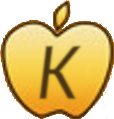In our rapidly evolving digital age, traditional concepts such as copyright are being rigorously tested. The advent of Artificial Intelligence (AI), in particular, has initiated a crucial debate on the validity and efficacy of existing copyright laws. This debate becomes particularly intense when we consider the striking difference in the treatment of photographs and AI-generated art under current copyright laws. This discrepancy calls into question our collective understanding of creativity, ownership, and the essence of copyright itself. Is it time for us to reevaluate the concept of copyright in the digital era?
Continue reading AI and copyright: Addressing an incongruity(4 min read)









